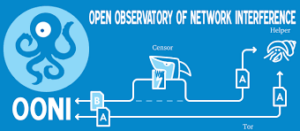
Credit: Access Now
The imposition of an internet shutdowns was among the first acts of Sudan’s military as it seized power in last week’s coup, Access Now reports.
UN Special Rapporteur Clement Voule recently warned that shutdowns are getting worse and more widespread, notes Scott Carpenter, Jigsaw’s Director of Policy and International Engagement. As the world’s most technologically advanced democracies formalize their multilateral coordination on technology issues in groupings like the T-12 or the Quad, they should prioritize internet shutdowns as a key pillar of their agenda, he writes for TechCrunch:
 Documenting even partial internet shutdowns is a critical first step to addressing this issue globally. No government should be able to shut down the internet without the international community knowing about it. That’s why Jigsaw is working with leading researchers at Access Now, Censored Planet, Open Observatory of Network Interference (OONI), and others to make information available, build understanding, and mitigate the impact of shutdowns….. Grassroots efforts to highlight internet shutdowns such as the #KeepItOn movement, a coalition of more than 240 organizations from 105 countries, provides a range of advocacy, technical support, and legal interventions to prevent future shutdowns.
Documenting even partial internet shutdowns is a critical first step to addressing this issue globally. No government should be able to shut down the internet without the international community knowing about it. That’s why Jigsaw is working with leading researchers at Access Now, Censored Planet, Open Observatory of Network Interference (OONI), and others to make information available, build understanding, and mitigate the impact of shutdowns….. Grassroots efforts to highlight internet shutdowns such as the #KeepItOn movement, a coalition of more than 240 organizations from 105 countries, provides a range of advocacy, technical support, and legal interventions to prevent future shutdowns.
Curbs on the internet offer a competitive advantage to authoritarian regimes vis-à-vis democracies, according to recent research.
“If there is a benefit to imposing internet control, given the absence of effective international regulations, does this give authoritarian states an advantage in trade and national competitiveness?” MIT analyst Meicen Sun asks.

The evolving relationships among digital technologies, information integrity, and democracy are the focus of Digital Directions, a new, specialized newsletter from the International Forum for Democratic Studies at the National Endowment for Democracy that examines authoritarian manipulation and democratic resilience in the digital domain.
Through the Organization for Economic Cooperation and Development, the United States and other like-minded states could build on the work of the Online Freedom Coalition, a grouping of thirty-five democracies committed to online freedom, to enhance funding efforts to understand the technical aspects of the threat and develop technical and policy responses, adds Carpenter, a board member of the National Endowment for Democracy (NED). They could ensure concerted condemnation accompanies future shutdowns and articulate ‘red lines’ to trigger sanctions on countries violating their commitments under international human rights law. RTWT
To curtail foreign cyber attacks, the legal and political vacuum surrounding what is and isn’t acceptable needs to be clarified by state and corporate entities, says Stanford’s Marietje Schaake.
To curtail foreign cyber attacks, the legal and political vacuum surrounding what is and isn’t acceptable needs to be clarified by state and corporate entities, says @MarietjeSchaake.
📺 Watch more on @gzeromedia. ⏬ https://t.co/J1tExdw5DM
— FSI Stanford (@FSIStanford) November 1, 2021







